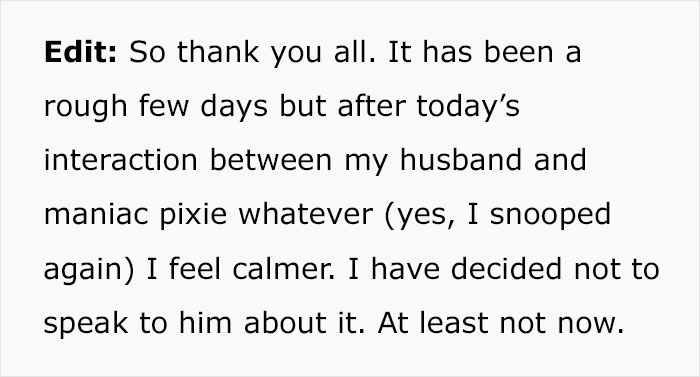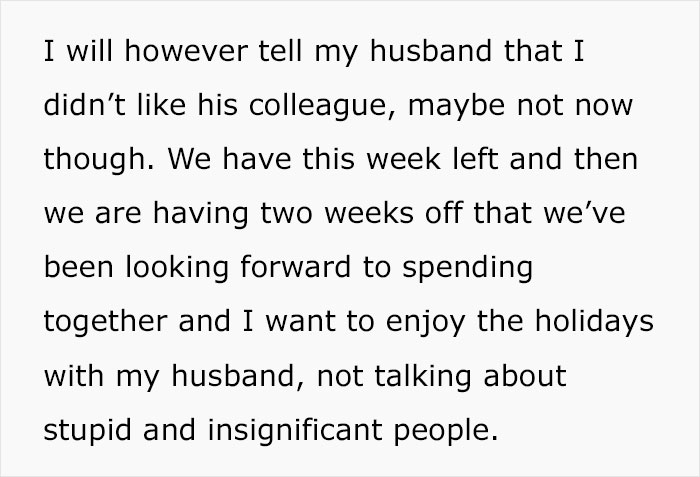You’ve heard of the “work best friend,” and unfortunately, many of us have a work nemesis as well. But what about the work spouse?
Considering how many hours we spend in the workplace, it’s perfectly normal for some of our professional relationships to mimic those in our personal lives. But after discovering that one of her husband’s colleagues considers herself to be his “work wifey,” this woman started wondering if she should be concerned. Below, you’ll find the full story that she recently shared on Reddit, as well as a conversation with marriage therapist Dr. Lee Baucom.
We all trust our partners to spend the whole day at work and return home to us at night

Image credits: FoToArtist_1 (not the actual photo)
But after meeting her husband’s “work wife,” this woman started to wonder if she should intervene
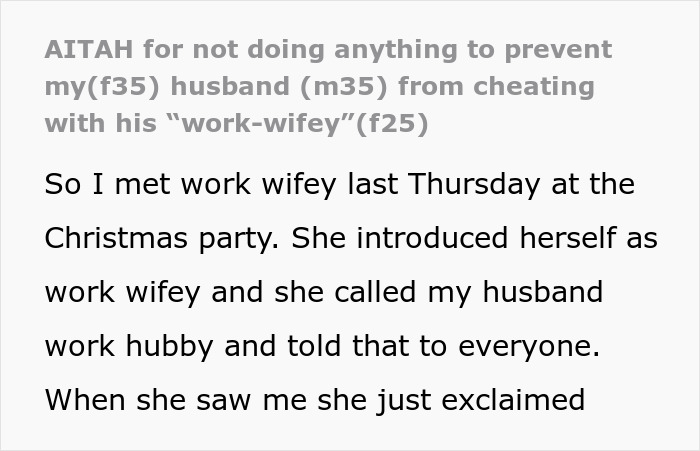


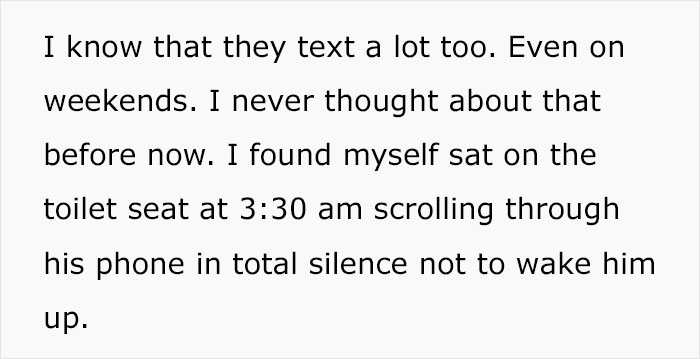



Image credits: Liza Summer (not the actual photo)
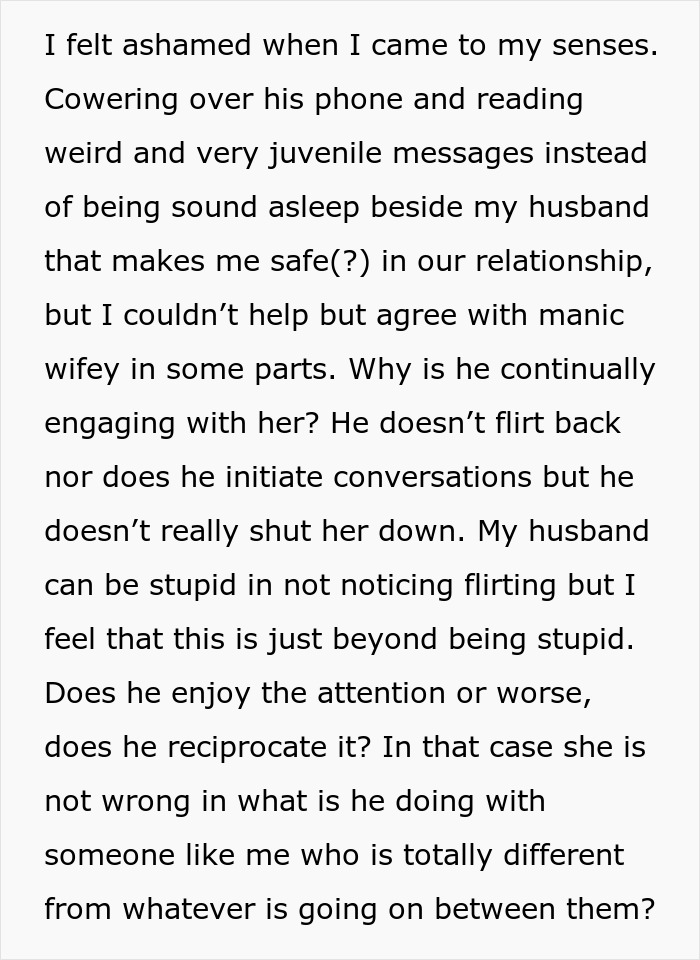
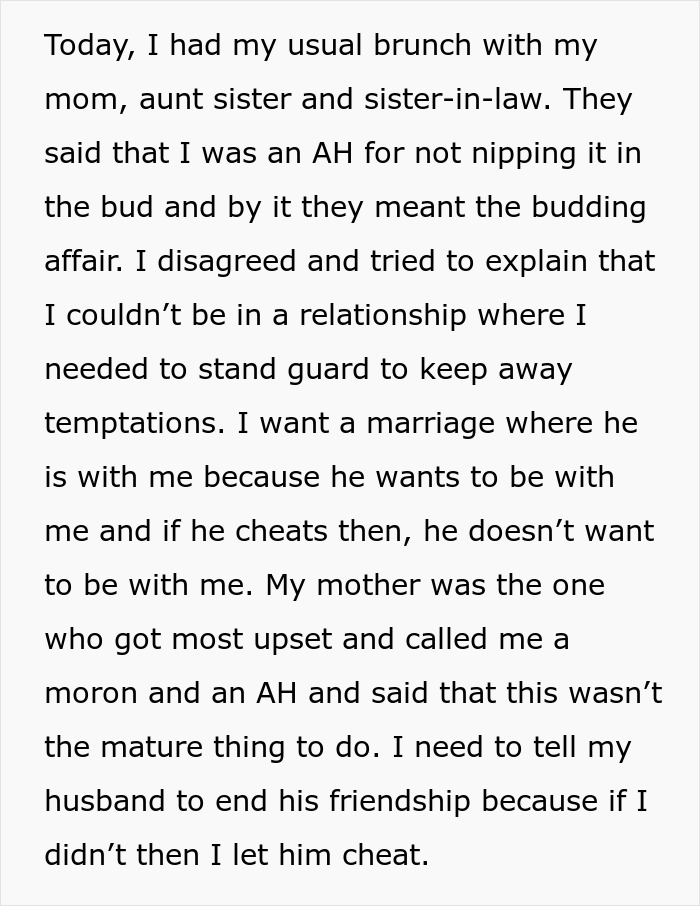
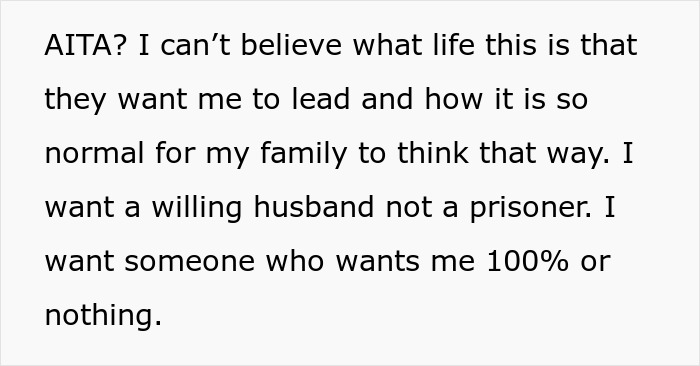
Image credits: Itchy_Muscle47
Later, the woman shared about one more conversation she read
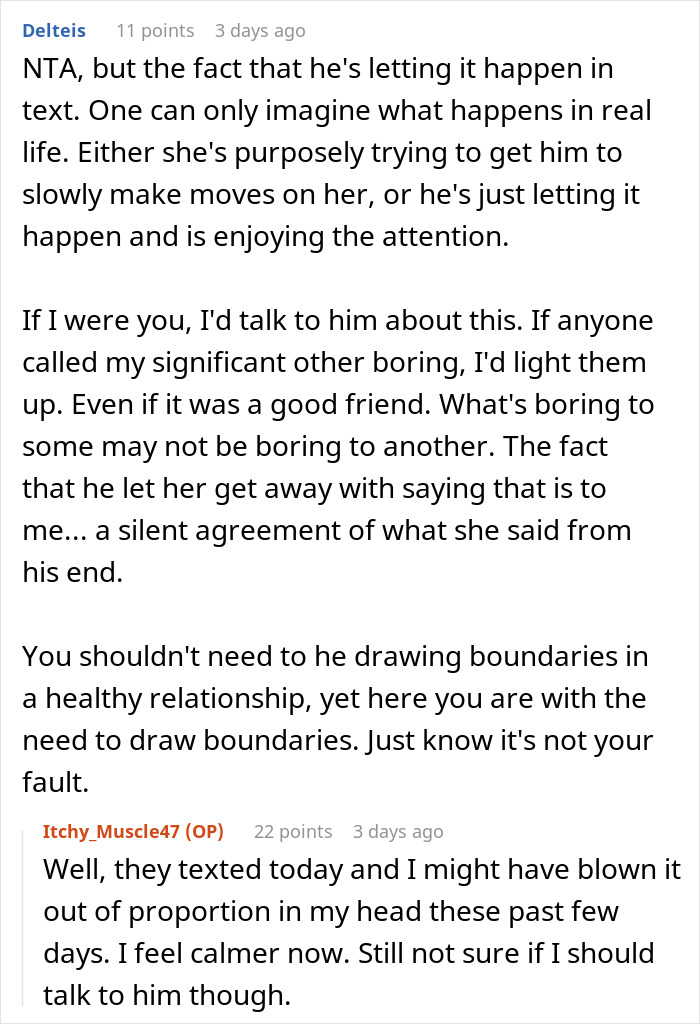

She also replied to several readers and provided more info on the situation

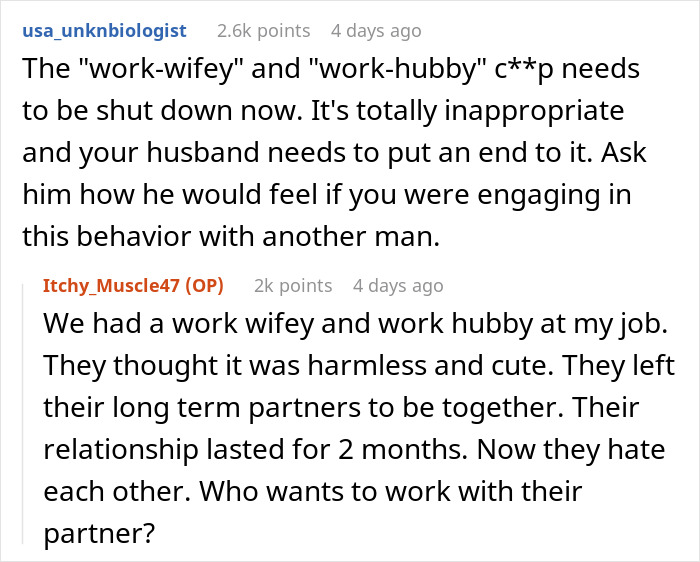
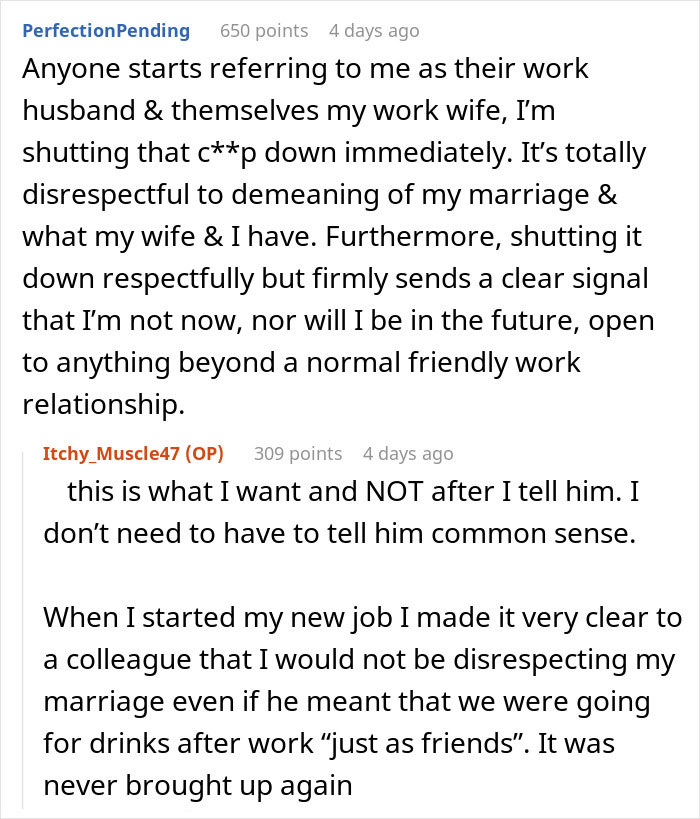
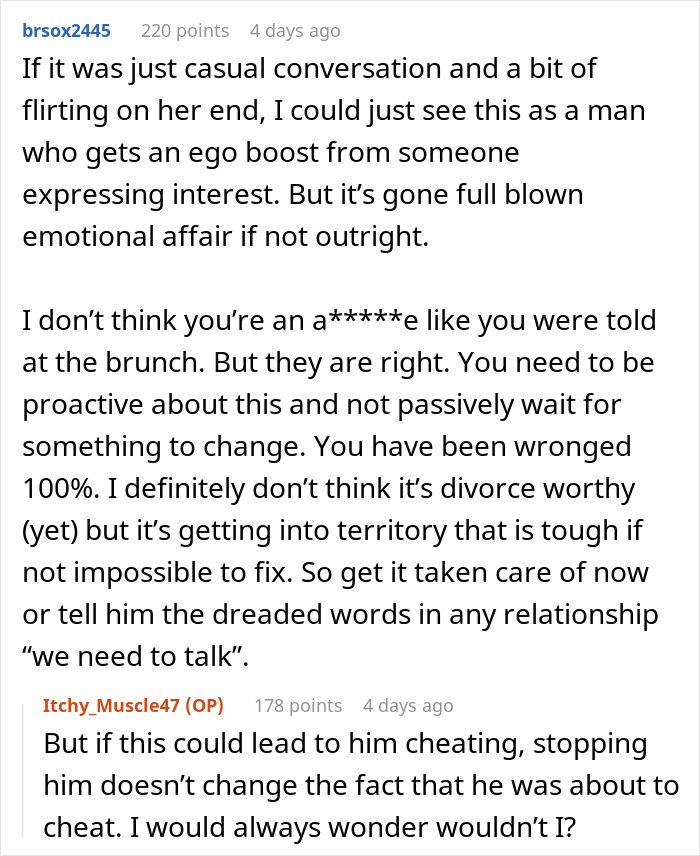


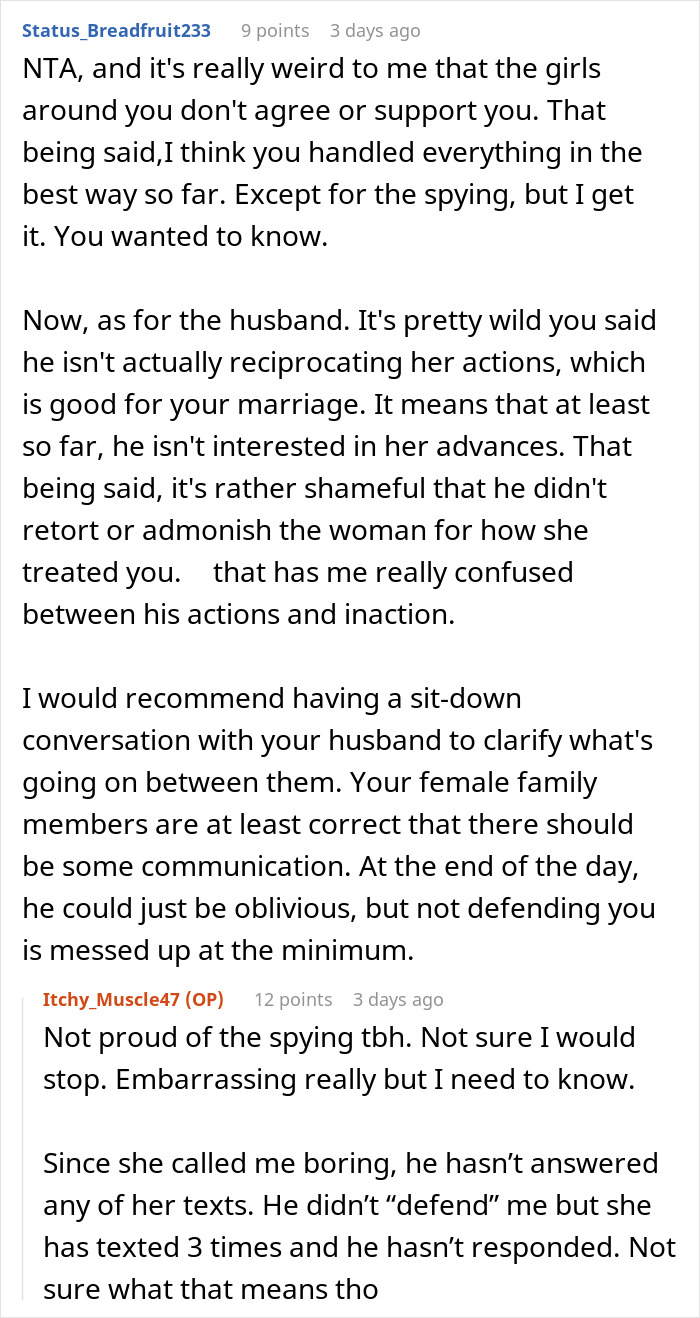
“The term blurs the boundary between work and intimate life; it creates the expectation of emotional intimacy that is beyond the tasks of work”
To learn whether having a “work spouse” is inappropriate or simply a joke, we reached out to therapist and creator of Save the Marriage, Dr. Lee Baucom. “Most people use that phrase without giving it a thought,” he told Bored Panda. “And for many, it isn’t an issue. But the term blurs the boundary between work and intimate life. It creates the expectation of emotional intimacy that is beyond the tasks of work.”
“Why not simply say, ‘co-worker,’ or ‘colleague’?” the expert asks. “Because it infers a greater level of connection. And yes, that can lead to deeper issues, including at least emotional infidelity — the result of sharing too much about personal or relational issues that are beyond the scope of work.”
We were also curious if it’s ever appropriate for a spouse to snoop through a partner’s phone if they’re suspicious about their activities. “It is always okay to ask permission to see a spouse’s phone, if there is concern or suspicion,” Dr. Baucom says. “But looking through without permission is always problematic.”

Image credits: Desola Lanre-Ologun (not the actual photo)
“If you have concerns about communication between a spouse and someone else, asking to see it is fair”
“There is clearly a trust issue already in the relationship,” the expert explained. “Now, it is compounded by an actual betrayal of trust. If you have concerns about communication between a spouse and someone else, asking to see it is fair. They can refuse to, which can lead to a conversation about why the refusal? It may be they would be uncomfortable with their spouse seeing the actual communication. It may also be they are simply feeling their privacy is being invaded.”
But Dr. Baucom notes that, often, when a spouse snoops without permission, the issue is no longer about the concern between them and someone else. “The focus is suddenly about the invasion of privacy and the sense of betrayal,” he explained.
As far as what couples should do in situations like this, the marriage expert says that any time concerns about the relationship arise, it’s a good time to have a conversation. “A concern can be a reflection on the spouse’s actions. It can be a reflection of someone’s own insecurities. And it can be a reflection of both,” Dr. Baucom says. “But you can’t figure that out without talking it through.”

Image credits: Felicity Tai (not the actual photo)
“You can’t make a spouse follow your expectations; you can, though, come to an agreement about how both will protect the relationship”
“It is also a good time for couples to talk about what boundaries they agree to, in order to protect the relationship,” the expert told Bored Panda. “You can’t make a spouse follow your expectations. You can, though, come to an agreement about how both will protect the relationship.”
“What needs to happen for both to feel safe, and each to protect the marriage? That’s a great conversation. One that is best had at the beginning,” Dr. Baucom shared. “But if not then, when there is a concern.”
The marriage expert also noted that we all have “blind spots” in relationships. “Maybe one person is missing the actual threat… until it is too late. But agreeing together on the boundaries, and on the importance of having open conversations when one is uncomfortable, can help keep a marriage safe,” he explained. “And can help both partners feel safe.”
If you’d like to hear more wise words on marriage and relationships from an expert, be sure to visit Dr. Baucom’s site Save the Marriage!
The story received mixed reactions from readers, with some sharing support for the wife and others saying she needs to work on her communication


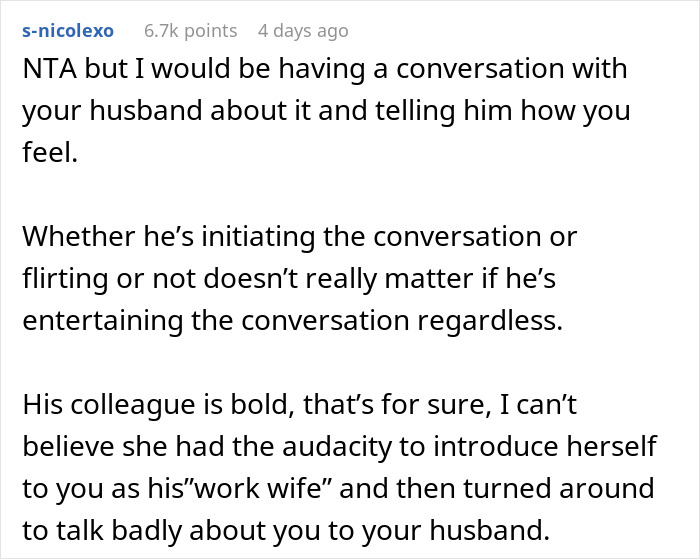
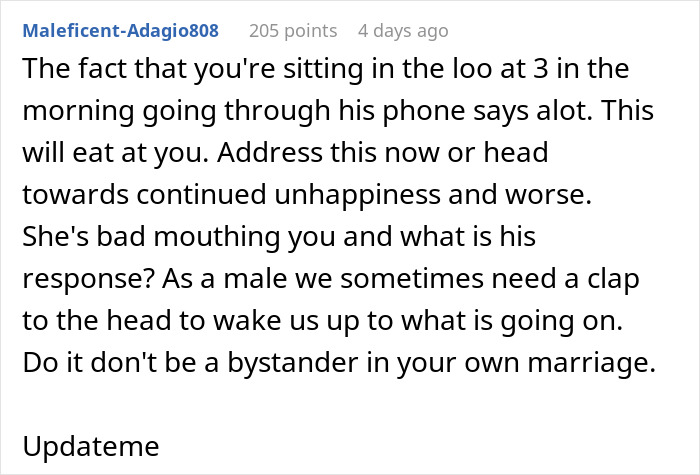

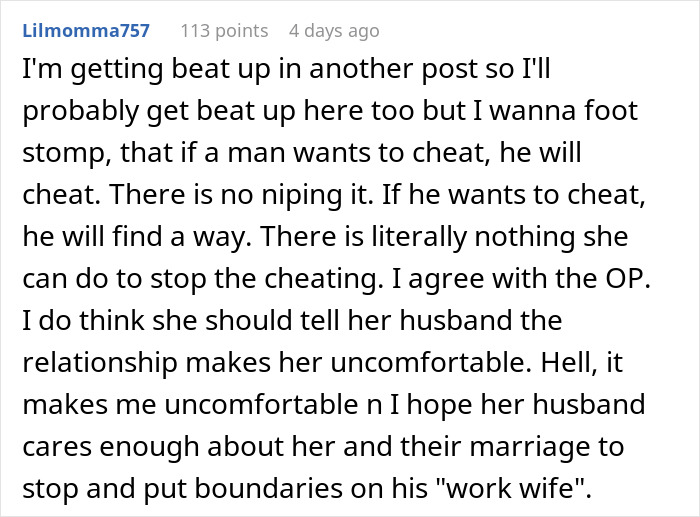
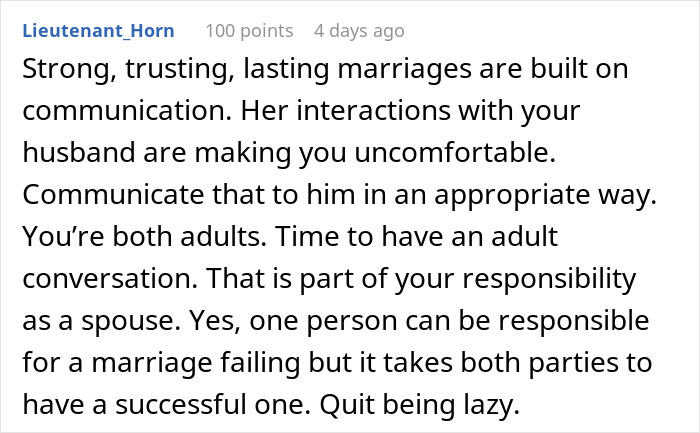




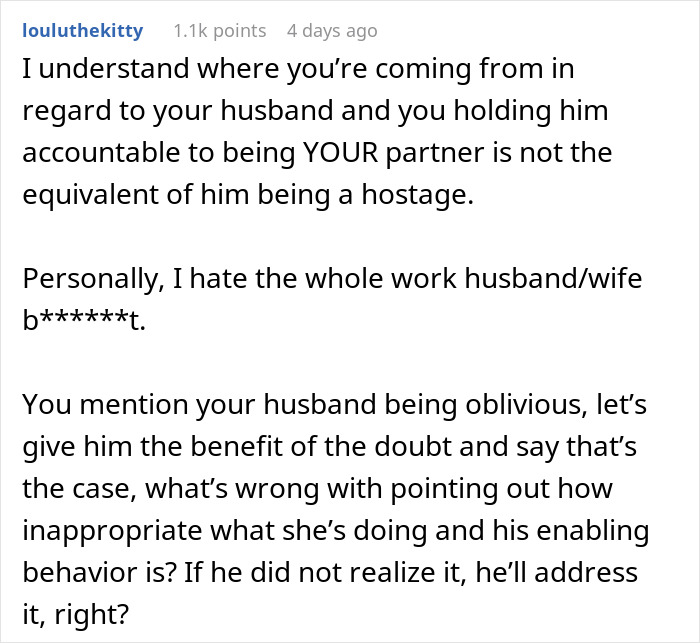
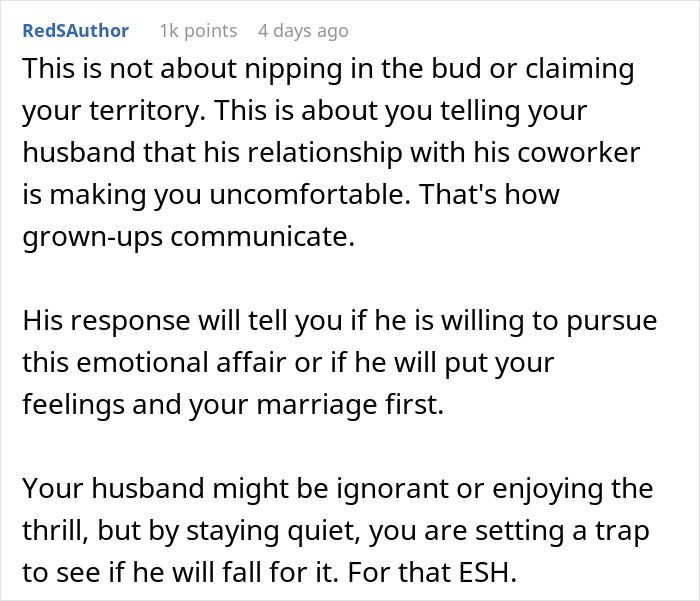
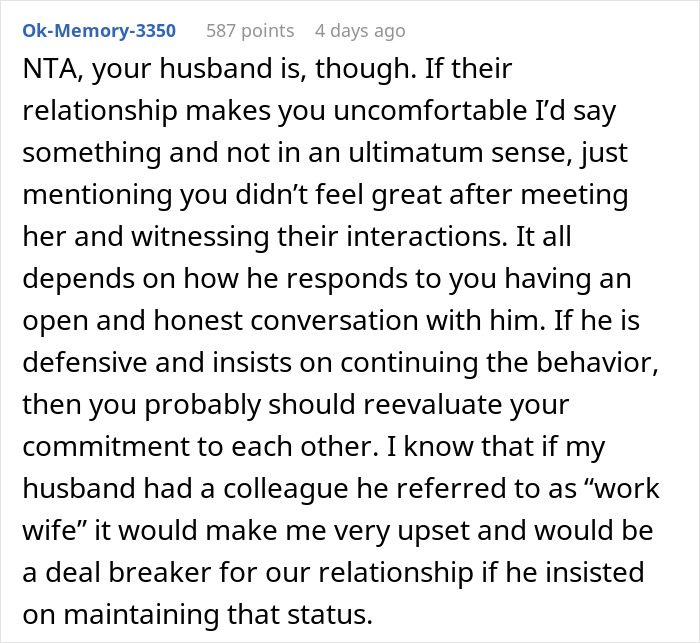
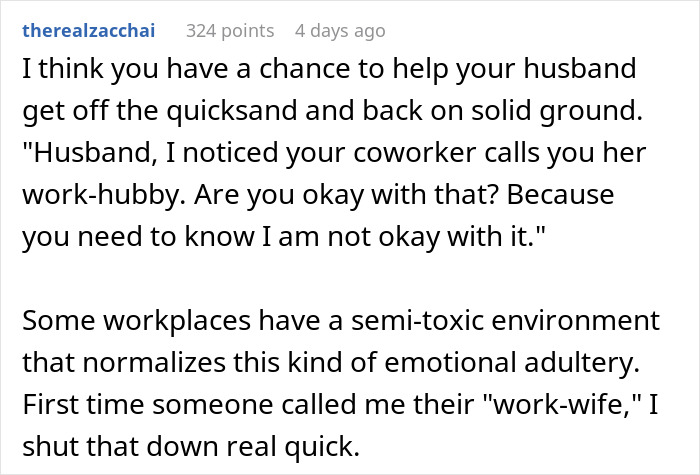
Some readers even had similar stories of their own to share

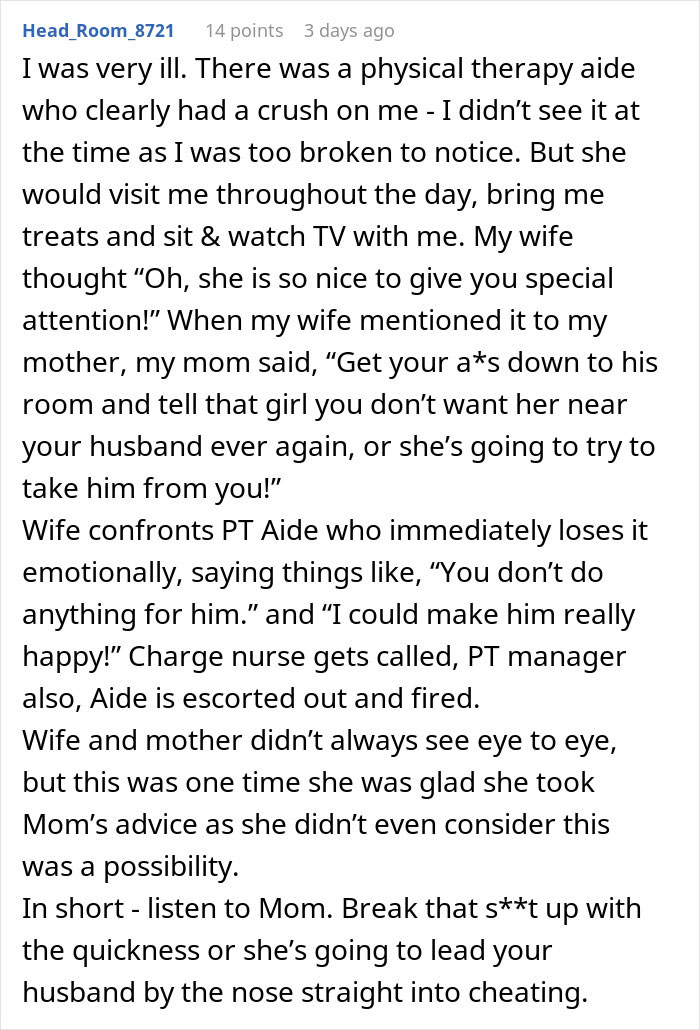
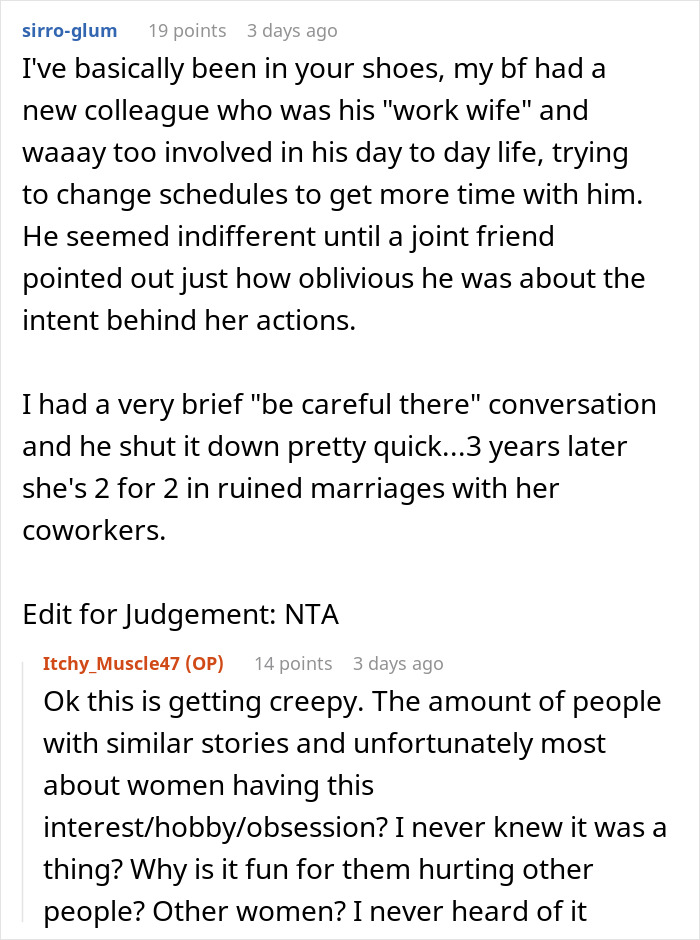

Later, the wife provided an update and shared how she has decided to proceed
